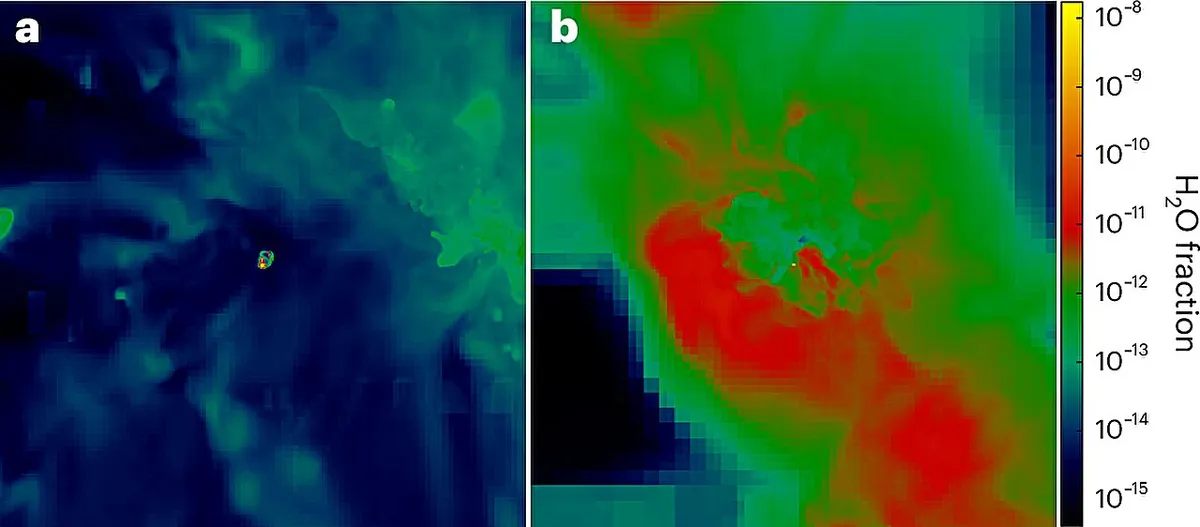
Recent modeling research published in Nature Astronomy suggests that water may have formed in the universe as early as 100 to 200 million years after the Big Bang. This groundbreaking study indicates that the formation of water could have occurred earlier than previously anticipated and may have played a vital role as a key component in the first galaxies.
Water is essential for life as we know it, and its basic components—hydrogen and oxygen—have distinct formation processes. While lighter elements like hydrogen, helium, and lithium were produced during the Big Bang, heavier elements such as oxygen emerged from nuclear reactions within stars and through supernova explosions. This raises questions about when exactly water began to form in the universe.
Lead researcher Daniel Whalen and his team conducted simulations based on two supernovae: one from a star 13 times the mass of the Sun and another from a star 200 times the mass of the Sun. These simulations allowed them to analyze the byproducts of these cosmic explosions. Remarkably, they discovered that 0.051 solar masses of oxygen were generated in the first simulation, while the second simulation yielded a staggering 55 solar masses of oxygen due to the extremely high temperatures and densities reached during the explosions.
The study further revealed that as this gaseous oxygen cooled and interacted with the surrounding hydrogen left behind by the supernovae, water began to form in the resulting dense clumps of material. These clumps are believed to be the potential sites for the formation of the second generation of stars and planets.
In the first simulation, the mass of water formed reached quantities equivalent to between one hundred millionth and one millionth of a solar mass within 30 to 90 million years following the supernova event. In the second simulation, the amount of water formed was approximately 0.001 solar masses after just 3 million years. These findings suggest that if water could endure the tumultuous processes involved in the formation of the first galaxies, it could have been integrated into the formation of planets billions of years ago.
This research not only challenges existing beliefs about the timeline of water formation in the universe but also emphasizes the significance of water as a fundamental building block for life. As scientists continue to explore the cosmos, understanding the origins of water could provide invaluable insights into the conditions that foster the emergence of life beyond Earth.